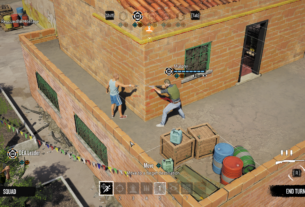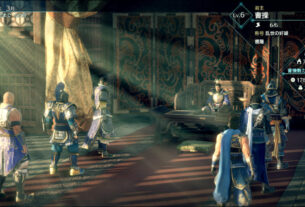
What is it? A dark 2D Metroidvania
Expect to pay: $25/£20
Developer: The Game Kitchen
Publisher: Team 17
Reviewed on: Nvidia GTX 1070, i7-8700, 16 GB RAM
Multiplayer: No
Link: Official site
“Exemplaris Excomvnicationis.” I have absolutely no idea what these words mean, but every death is accompanied by this same grim message so I’ve been seeing it a lot. Blasphemous is a 2D Metroidvania set in a Catholic-themed apocalypse, and like seemingly every second game released now, has a clear Dark Souls inspiration. With its beautiful and gory pixel art style, oppressively moody soundtrack and grotesquely tortured enemies, it’s easy to get sucked into Blasphemous’s doomed and miserable world.
You play as a giant pinhead, the ominously dubbed “Penitent One”, who begins his quest after waking up in a castle flooded with the naked corpses of his fellow pinhead brethren. Clearly the night before got out of hand. Little nuggets of lore fed via the various characters you meet flesh out the world: saints, oracles and, guilt-ridden pilgrims, all of the suffering have something to say.
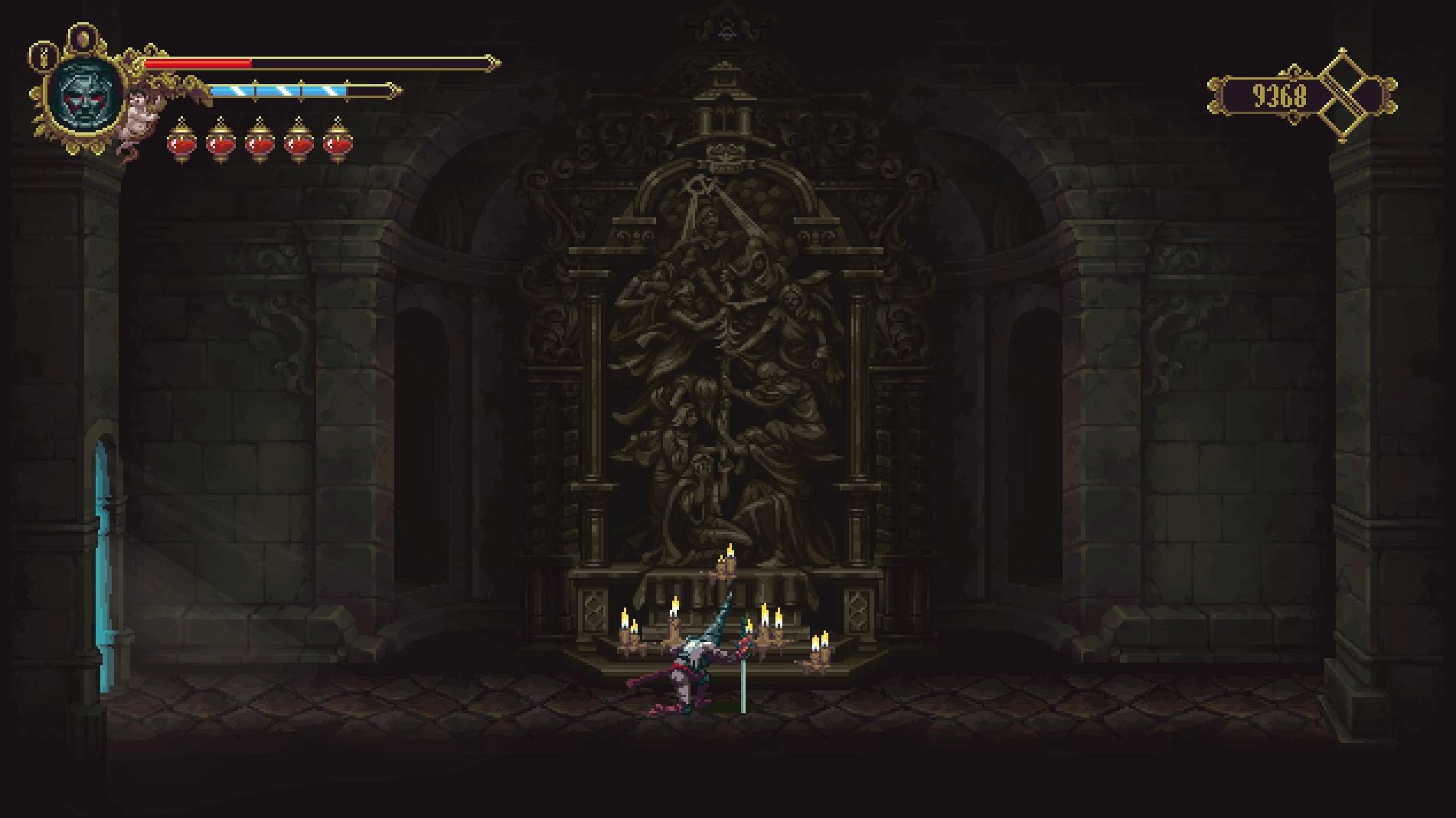
Suffering is the perfect word to describe Blasphemous. The world is in perpetual pain, enemies are agonised by their own existence, everyone is either dead or dying and progress cannot be gained without a few grotesque deaths of your own. Even the act of healing requires you smash a glass of blood into your face. Every moment in Blasphemous is unsettling and my morbid curiosity dragged me from screen to screen. What tortured unholy sight would I see next? The world is horrible and it’s all the more compelling for it. It felt like I was on a mercy-killing spree.
Combat is simple. You start with a one-button three-hit combo that can be upgraded to four with a few different directional finishes. There are a handful of upgrades you can unlock to increase your move set, but it’s all basic. You get a dash, plunging, range and charged attack, none of which you need to use. There are special “fervour bar” abilities called prayers, only one being equippable at a time. Unfortunately, the prayers are dull to use and there’s not much variety. They feel underpowered and don’t provide the same satisfaction as hacking away at an enemy with a sword.
The combat’s focus is instead on learning enemy patterns and precise positioning—ducking or jumping over projectiles, parrying quick attacks and dodging through unblockables. Blasphemous was at its best when I was dancing through a screen full of fast-moving attacks, perfectly timing my hits to knock projectiles away while looking for a gap to strike. However, once I learnt the fights, the execution became simple.
The stars of the Blasphemous show are undoubtedly the boss fights. Their difficulty can range from overly simple, an easy clear on the second attempt, to a crushing hour of trial and error, each death chipping off an extra inch from the boss’s health bar.
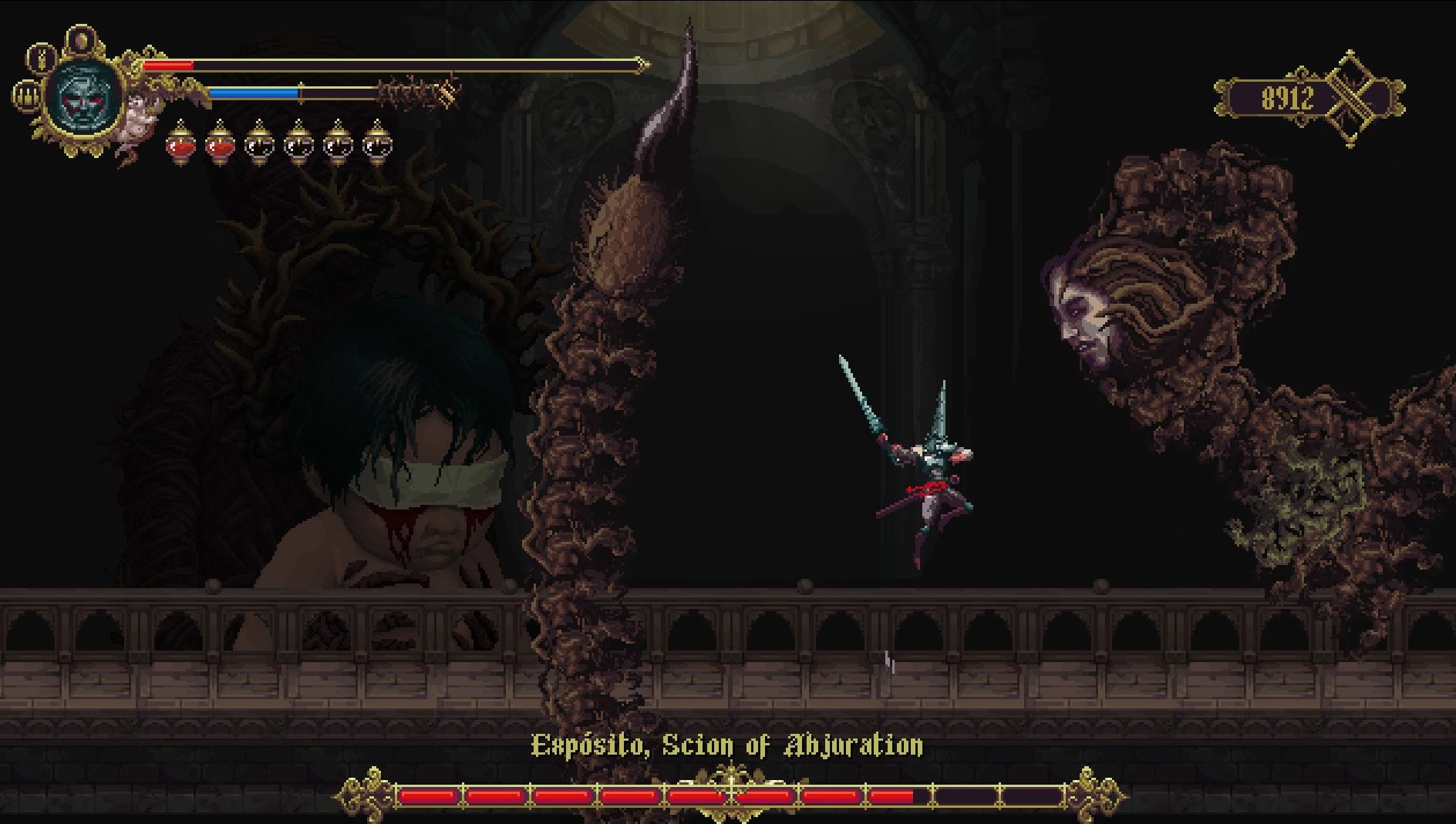
Hidden throughout the game, usually after a boss, are altars that increase the damage of your attacks. While this does make running through previously explored areas easier, it has the unfortunate effect of trivialising some boss battles.
As a Metroidvania, Blasphemous grants you freedom in the order you progress—each area is connected via a hidden ladder, elevator or locked door. I apparently went in an unintended order, which resulted in a difficult but fun couple of hours, followed by yawning my way through the subsequent areas I was clearly supposed to have tackled first.
Blasphemous’s biggest pitfall is its platforming—some of the jumps require slightly too much precision. Most of my deaths were due to a missing the exact timing by a fraction of a second. Specifically, it’s the spike pits that I had the most problems with. For all other jumps, pinhead automatically grabs onto the ledge and there’s a slight margin for error, but you’re not afforded that mercy with the plethora of spike falls littered around the world.
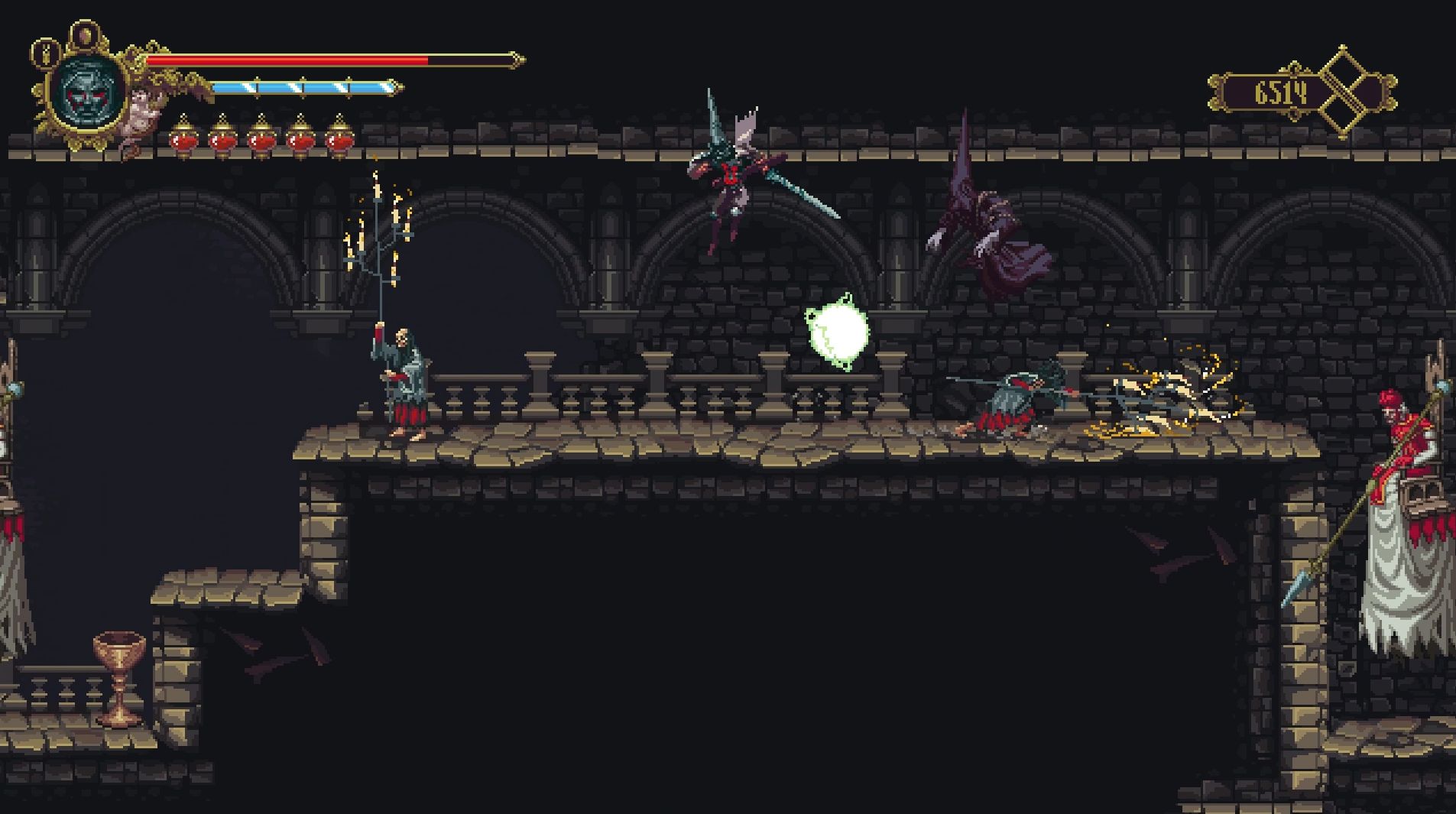
Repeatedly dying to an enemy or a boss is one thing. I’m learning. Eventually, I will figure out how to rip their head off and feel that sweet, sweet catharsis. Repeatedly dying to a platforming obstacle? There is no catharsis to be had. I can’t kill it, there is no victory. Dying to the same couple of jumps for five minutes straight is deeply frustrating. It’s an annoyance getting between me and the real fights. It got to the point where I planned my routes around them.
Still, Blasphemous tempted me back thanks to its multiple endings, the requirements for which are suitably vague. After one completion I had enough understanding of its world to have a clue as to where I should look and, like with any good Metroidvania, I feel intrigued enough to return for at least one more playthrough.
Read our review policy
Lack of depth and variety, and some platforming missteps, stain an otherwise great, oppressive experience.


